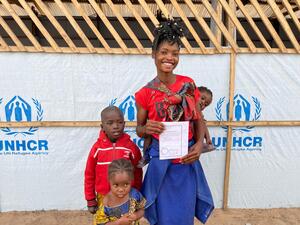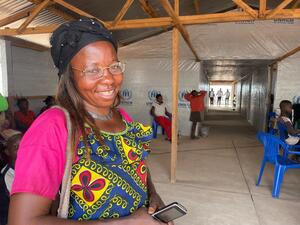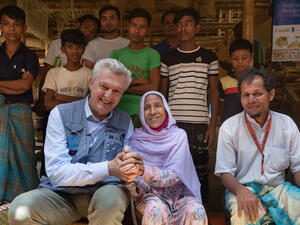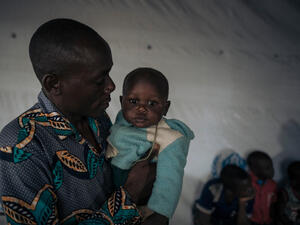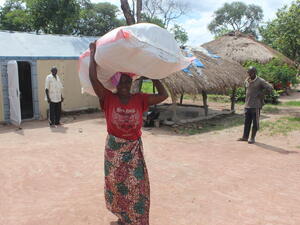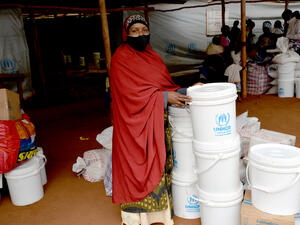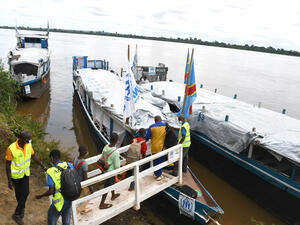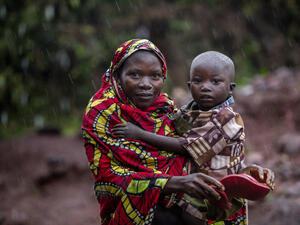Burundian refugee returns must be voluntary and sustainable
Burundian refugee returns must be voluntary and sustainable

Burundian refugees and members of the host community come together once a week at a market outside Nduta camp, Tanzania.
UNHCR, the UN Refugee Agency, and partners are urging Tanzania to ensure Burundian refugee returns are voluntary and based on individual choices – in keeping with the country’s longstanding history of generosity toward those fleeing persecution, and in line with its international obligations.
UNHCR reiterates that every refugee must have the freedom to decide on when to return and the decision be based on a free and informed choice.
“It is crucial not to pressure Burundian refugees directly or indirectly to influence their decision on return,” said UNHCR’s Assistant High Commissioner for Protection Volker Türk. “Refugees need to have a meaningful choice and the decision to return must be voluntary, based on facts and ground realities.”
Tanzania hosts more than 250,000 refugees from Burundi, most of whom fled following political upheaval there in 2015.
UNHCR’s position was conveyed during a recent visit to Tanzania by the Assistant High Commissioner last week, after recent statements and actions by local government officials in Tanzania encouraging Burundian refugees to return home, and indicating the eventual closure of refugee camps in the country.
UNHCR’s Türk welcomed the assurances given by Tanzania authorities to uphold international obligations to safeguard refugee rights inside the country and to ensure that all refugee returns are voluntary, and carried out safely and with dignity.
“UNHCR is not promoting returns to Burundi at this stage, but we continue to work with the governments of Burundi and host countries, including Tanzania, to assist those who feel now is the time for them to return home,” he added.
Some 44,000 Burundian refugees have so far been assisted to repatriate voluntarily to Burundi, citing improved overall security in the country, desires to reoccupy farmland, and to reunify with family. Some returnees also say that they feel the conditions at home, however challenging, will be better than what they are experiencing as refugees.
In the meantime, an average of 1,000 refugees continue to arrive to neighbouring countries each month, citing insecurity, harassment, and fear. UNHCR urges all governments in the region to maintain open borders for asylum seekers from Burundi and to continue to provide international protection for those who need it.
UNHCR is also calling on the international community to step up support to ensure that pressing humanitarian needs are addressed for the hundreds of thousands of Burundian refugees who remain in exile. More funding is also urgently needed to support reintegration programs for refugees choosing to return. The Burundi situation is one of the least funded in the world. Currently only 12 per cent of the USD391 million required by UNHCR and partners this year has been received.
For the nearly 400,000 Burundian refugees in the region, the lack of funding has resulted in food ration cuts, lack of proper shelter, and overcrowded classrooms with some children unable to attend school at all.
Media contacts:
- In Nairobi, Dana Hughes, [email protected], +254 733 440 536
- In Geneva, Babar Baloch, [email protected], +41 79 513 9549

